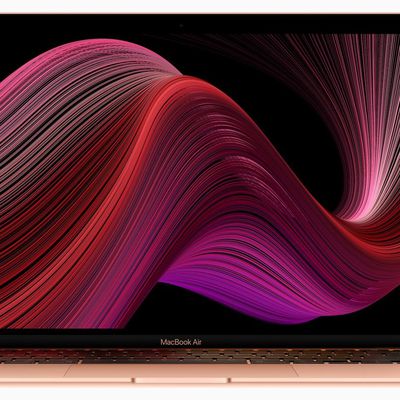'M4 Extreme' Chip Unlikely After Apple 'Cancels' High-Performance Chip [Updated]
Apple this "past summer" canceled the development of a high-performance Mac chip that would have consisted of four smaller chips stitched together, in order to free up engineering resources for a planned AI server chip, according to The Information.

Based on the report's description of the chip, it sounds like Apple has canceled a previously-rumored "Extreme" chip for the Mac. It was previously reported that an "M2 Extreme" chip was scrapped a few years ago, but perhaps Apple had revisited the idea since then. In any case, it now sounds like an "M4 Extreme" chip is also unlikely.
Apple likely would have introduced the "M4 Extreme" in its high-end Mac Pro tower. The chip would have offered even faster performance than the M4 Ultra chip that is expected to launch in new Mac Studio and Mac Pro models later next year.
If the "M4 Extreme" were to have been a quadrupled version of the M4 Max chip that debuted in the MacBook Pro a few months ago, it would have had massive specifications, including up to a 64-core CPU and up to a 160-core GPU.
While the "Extreme" chip may be off the table once again, it seems like Apple has repeatedly shown interest in developing such a chip, so perhaps it will eventually materialize as part of the M5 series or later. For now, though, the wait continues.
Update: After this story was published, Daring Fireball's John Gruber made a good point about how there is a long, multi-year gap between Apple designing and shipping new chips. Accordingly, it is possible the latest chip canceled actually would have been an "M5 Extreme" chip or later if development was only recently ended.
Popular Stories
Apple is not expected to release a standard iPhone 18 model this year, according to a growing number of reports that suggest the company is planning a significant change to its long-standing annual iPhone launch cycle.
Despite the immense success of the iPhone 17 in 2025, the iPhone 18 is not expected to arrive until the spring of 2027, leaving the iPhone 17 in the lineup as the latest...
Apple's restrained artificial intelligence strategy may pay off in 2026 amid the arrival of a revamped Siri and concerns around the AI market "bubble" bursting, The Information argues.
The speculative report notes that Apple has taken a restrained approach with AI innovations compared with peers such as OpenAI, Google, and Meta, which are investing hundreds of billions of dollars in data...
The Apple Fitness+ Instagram account today teased that the service has "big plans" for 2026. In a video, several Apple Fitness+ trainers are shown holding up newspapers with headlines related to Apple Fitness+.
What's Apple Fitness+ Planning for the New Year?
Something Big is Coming to Apple Fitness+
The Countdown Begins. Apple Fitness+ 2026 is Almost Here
2026 Plans Still Under ...
iPhone 17 Pro and Pro Max owners are having trouble with the speakers of their devices, and have complained about a static or hissing noise that occurs when the iPhone is charging.
There are multiple discussions about the issue on Reddit, the MacRumors forums, and Apple's Support Community, where affected users say there is a noticeable static noise "like an old radio." Some people report...
Apple is rumored to be introducing a foldable iPhone in September 2026, and since it will bring the biggest form factor change since the iPhone was introduced in 2007, curiosity about the design is high. A 3D designer created an iPhone Fold design based on rumors, and we printed it out to see how it compares to Apple's current iPhones.
Subscribe to the MacRumors YouTube channel for more ...
Apple hasn't updated the Apple TV 4K since 2022, and 2025 was supposed to be the year that we got a refresh. There were rumors suggesting Apple would release the new Apple TV before the end of 2025, but it looks like that's not going to happen now.
Subscribe to the MacRumors YouTube channel for more videos.
Bloomberg's Mark Gurman said several times across 2024 and 2025 that Apple would...
Apple hasn't updated the Mac Pro since 2023, and according to recent rumors, there's no update coming in the near future. In fact, Apple might be finished with the Mac Pro.
Bloomberg recently said that the Mac Pro is "on the back burner" and has been "largely written off" by Apple. Apple apparently views the more compact Mac Studio as the ideal high-end pro-level desktop, and it has almost...
Apple today added the final 13-inch MacBook Air powered by Intel processors, the Apple Watch Series 5, and additional products to its vintage products list. The iPhone 11 Pro was also added to the list after the iPhone 11 Pro Max was added back in September.
The full list of products added to Apple's vintage and obsolete list today:
MacBook Air (Retina, 13-inch, 2020)
iPhone 8 Plus 128GB ...

























